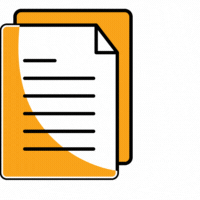Hubungan Usia dan Paritas dengan Breastfeeding Self Efficacy pada Ibu Post Partum
DOI:
https://doi.org/10.35473/ijm.v5i1.1543Abstract
Breastfeeding self efficacy is the self-confidence that mothers have in terms of breastfeeding that can predict whether the mother will decide to breastfeed, how much effort is made to breastfeed, whether to have a constructive or destructive mindset and how to respond to various problems and difficulties during breastfeeding. Research shows that breastfeeding self-efficacy is an important factor associated with the initiation, duration and exclusion of breastfeeding. The purpose of this study was to analyze factors associated with breastfeeding self efficacy in postpartum mothers. The study was conducted at PMB Ignasia Tripuji Astuti, S.ST. Keb, Kandangan Village bawen district of Semarang regency. Research design using analytical surveys with a sample of 30 postpartum mothers. Data analysis with descriptive analysis methods The results of the Chi Square test obtained a p-value of 1,000, because the p-value of 1,000>α (0.05), then there was no significant association between maternal age and breastfeeding self efficacy. Chi Square test results obtained a p-value of 0.011. Because of p-value 0.011<α (0.05), there is a significant relationship between parity and breastfeeding self efficacy in PMB Ignasia Tripuji Astuti, S.ST. Keb Kandangan Village. The odd ratio is 10.83. This suggests that primipara mothers have a 10.83 times greater risk of having low breastfeeding self efficacy, compared to multipara mothers. The conclusion of this study in maternal age showed no association with breast feeding self efficacy of postpartum mothers while parity showed there was a significant association to breastfeeding self efficacy of postpartum mothers in PMB Ignasia Tripuji Astuti, S.ST. Keb
Abstrak
Breastfeeding self efficacy merupakan keyakinan diri yang dimiliki oleh ibu dalam hal menyusui yang dapat memprediksi apakah ibu akan memutuskan untuk menyusui, sebesar apa upaya yang dilakukan untuk menyusui, apakah mempunyai pola pikir yang membangun atau merusak dan bagaimana cara merespon berbagai masalah dan kesulitan selama menyusui. Penelitian menunjukan bahwa breastfeeding self efficacy adalah faktor penting yang berhubungan dengan inisiasi, durasi dan keeksklusifan menyusui. Tujuan penelitian ini untuk menganalisis faktor yang berhubungan dengan breastfeeding self efficacy pada ibu postpartum.  Penelitian ini dilaksanakan di PMB Ignasia Tripuji Astuti, S.ST.Keb, Desa Kandangan Kecamatan Bawen Kabupaten Semarang. Desain penelitian menggunakan survei analitik dengan sampel 30 ibu postpartum. Analisis data dengan metode descriptive analysis  Hasil penelitian didapatkan uji Chi Square diperoleh p-value sebesar 1,000, karena p-value 1,000>α (0,05), maka tidak ada hubungan secara signifikan antara umur ibu dengan breastfeeding self efficacy. Hasil uji Chi Square diperoleh p-value sebesar 0,011. Oleh karena p-value 0,011<α (0,05), maka ada hubungan secara signifikan antara paritas dengan breastfeeding self efficacydi PMB Ignasia Tripuji Astuti, S.ST.Keb Desa Kandangan. Hasil nilai Odd Rasio diperoleh sebesar 10,83. Ini menunjukkan bahwa ibu primipara memiliki resiko 10,83 kali lebih besar memiliki breastfeeding self efficacy rendah, dibandingkan ibu multipara Simpulan dari penelitian ini usia ibu menunjukkan tidak ada hubungan dengan breast feeding Self Efficacy ibu postpartum sedangkan paritas menunjukan ada hubungan yang signifikan terhadap Breastfeeding Self Efficacy ibu postpartum di PMB Ignasia Tripuji Astuti, S.ST.Keb.Downloads
References
Aminah, Siti dkk. (2018). Hubungan Karekteristik dan Dukungan Suami dengan Self
Efficacy Menyusui dalam Memberikan ASI Eksklusif pada Bayi di Rumah Sakit
DR. Sobirim Kab. Musi Rawas. Journal of Nursing and Public Health Volume 6
No.2 ( Oktober 2018).
Azwar, S. (2010). Metode Penelitian. Yogyakarta: Pustaka Pelajar.
Blyth, R., Creedy, D. K., Dennis, C. L., Moyle, W., Pratt, J., Vries, S. M. D. (2002). Effect
of maternal confi dence on breastfeeding duration: an application of breastfeeding
self-efficacy theory, birth: Issues in Prenatal Care, 29, (4).
Dennis,C.L. (2010).The Breastfeeding Self efficacy Scale:Psychometric assessment of the short form. JOGNN.2010:6:734-744
Fadhilah. (2016). Analisis Faktor Yang Berhubungan Dengan Self Efficacy Ibu Nifas Dalam Memberikan ASI Eksklusif. repository.unair.ac.id.
Faridvand, F., Mirghafourvand, M., Malakouti, J., Charandabi, M. (2017). Relationship between social support and breastfeeding self efficacy among women in Tabriz, Iran. British Journal of Midwifery, 25, (2).
Forster, D. A., McLahan, H. L., Lumley, J. (2006). Factor associated with breastfeeding at
six months postpartum in a group of Australian women. International
Breastfeeding Journal. 1, (18).
Green, LW, MW Kreuter. (1991). Health Promotion Planning. An Educational and Enviromental Approach. Mayfield Publishing Company, New York
Handayani, L., Kosnin, A., Jiar, Y. K. (2010). The role of social support, knowledge, attitude, and self efficacy in breastfeeding: social cognitive perspective. Buletin Psikologi, 18, (1).
McQueen, K. A.,Dennis,C. L., Stremler, R., Norman, C. D. (2011).A pilot randomized controlled trial of a breastfeeding self efficacy intervention with primiparous mothers. JOGNN,Vol 40, hal. 35-46
Mursyida. (2013). Hubungan Umur Ibu dan Paritas dengan Pemberian ASI Eksklusif pada Bayi Berusia 0-6 bulan di Puskesmas Pembina Palembang. Dipublikasikan untuk Poltekkes Kemenkes Palembang, Jurusan Kebidanan.
Notoatmodjo, S. (2010). Metodologi Penelitian Kesehatan. Jakarta: Rineka Cipta.
Notoatmodjo, S. (2014). Ilmu Perilaku Kesehatan. Jakarta: Rineka Cipta.
Purwanti. (2004). Konsep Penerapan ASI Eksklusif. Bandung : Cendekia
Torres, MM, Torres, RRD, RodrÃguez, AMP & Dennis, C-L (2003). ‘Translation and validation of the breastfeeding self- efficacy scale into spanish: Data From a puerto rican population’, Journal of Human Lactation, vol. 19, no. 1, hal. 35–42
Downloads
Published
How to Cite
Issue
Section
License
Copyright notice:
- Authors retain copyright and grant the journal right of first publication with the work simultaneously licensed under a Creative Commons Attribution License that allows others to share the work with an acknowledgement of the work's authorship and initial publication in this journal.
- Authors are able to enter into separate, additional contractual arrangements for the non-exclusive distribution of the journal's published version of the work (e.g., post it to an institutional repository or publish it in a book), with an acknowledgement of its initial publication in this journal.



